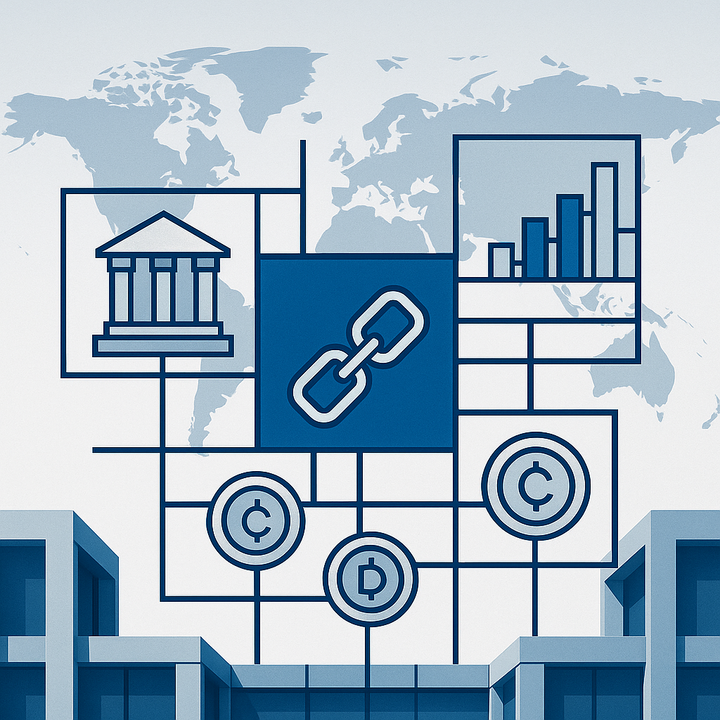
FinTech innovation 2025 is redefining the global banking industry. Technology is transforming how people save, invest, borrow, and transfer money across borders. What once required a physical branch can now be done instantly from a mobile device. This digital transformation is not only improving convenience but also promoting financial inclusion, transparency, and competition among financial institutions.
Traditional banks, once dominant, are now adapting to survive in an ecosystem driven by agility and data intelligence. Understanding fintech innovation in 2025 is essential for anyone seeking to navigate or invest in this rapidly evolving financial landscape.
What Is FinTech Innovation?
FinTech, short for financial technology, refers to the use of advanced digital tools to deliver and improve financial services. In 2025, fintech innovation includes blockchain applications, artificial intelligence, open banking, and decentralized finance (DeFi). These technologies simplify transactions, enhance security, and increase accessibility for consumers and businesses alike.
Importantly, fintech innovation 2025 extends beyond payments. It covers wealth management apps, digital lending, robo-advisory services, and insurtech solutions. As adoption grows worldwide, fintech companies serve billions of users daily. The integration of finance and technology has created a borderless, data-driven economy where personalization, efficiency, and innovation define success.
Why FinTech Innovation Matters in 2025
FinTech innovation is reshaping not just banking but also economic development. Digital solutions allow people without access to traditional banks to participate in financial systems. For businesses, fintech reduces costs and streamlines operations. For individuals, it increases control, transparency, and financial literacy.
Moreover, competition between fintech startups and traditional banks drives progress. As consumers demand faster, cheaper, and safer services, financial institutions must modernize or risk becoming irrelevant. Therefore, understanding fintech innovation 2025 helps investors and professionals identify opportunities while managing potential risks in this digital finance era.
Core Innovations Driving FinTech in 2025
Digital Payments and Wallets
The shift to cashless economies continues at full speed. Mobile wallets and contactless payments dominate daily transactions. Platforms such as Apple Pay, Google Pay, and regional leaders in Asia and Africa set new standards for convenience. Fintech startups now integrate payments with savings, credit, and investments, creating all-in-one financial ecosystems that promote loyalty and trust.
Blockchain and Decentralized Finance (DeFi)
Blockchain remains the foundation of fintech innovation 2025. Beyond cryptocurrencies, it supports cross-border transfers, identity verification, and decentralized lending. DeFi platforms remove intermediaries and lower transaction costs through smart contracts. As regulations mature, blockchain finance is becoming both safer and more accessible to global users.
Artificial Intelligence and Predictive Analytics
AI-driven solutions enhance personalization, fraud prevention, and customer engagement. Machine learning models analyze spending habits and risk profiles to recommend customized strategies. Predictive analytics help banks forecast demand, optimize credit scoring, and anticipate market trends. Consequently, AI is now the brain of modern banking operations.
Open Banking and API Integration
Open banking allows users to share financial data securely with third parties, enabling innovation through collaboration. APIs connect traditional banks and fintech startups, giving users access to multiple services—like payments, budgeting, and investments—within a single interface. In 2025, open banking acts as the backbone of a more integrated and transparent financial ecosystem.
Embedded Finance and Banking-as-a-Service (BaaS)
Embedded finance allows non-financial platforms, such as e-commerce or mobility apps, to offer financial products directly. Users can pay, borrow, or insure without leaving their favorite applications. Through Banking-as-a-Service, fintech startups can launch financial products quickly, without heavy infrastructure. This model accelerates innovation and promotes global inclusion.
Sustainable and Ethical Finance
Sustainability is no longer optional. Fintech firms now track ESG (Environmental, Social, and Governance) performance using AI and blockchain tools. These systems help investors align capital with environmental and social goals while ensuring measurable impact. As a result, ethical investing is becoming a core pillar of modern finance.
Opportunities and Benefits
FinTech innovation 2025 brings enormous opportunities for individuals, companies, and economies.
For consumers, fintech opens doors to better credit access, savings, and investment products. For businesses, it automates processes and enables global scalability. Additionally, governments benefit through improved transparency, faster tax collection, and better policy monitoring.
The fintech sector is also a major job creator. Millions now work in cybersecurity, data analytics, and UX design to support digital banking services. Investment in fintech continues to rise, with global valuations expected to exceed $500 billion by 2026.
Overall, fintech enhances growth, democratizes finance, and fosters a more inclusive global economy.
Risks and Challenges
Despite its advantages, fintech innovation introduces several risks. Cybersecurity threats are increasing as digital transactions multiply. Data protection laws differ across regions, creating compliance challenges for global firms. Moreover, algorithmic decision-making may sometimes reinforce biases or produce errors that affect lending and investment outcomes.
Regulatory complexity remains a concern. Governments must balance innovation with consumer protection. In addition, overreliance on technology can lead to operational vulnerabilities. Therefore, fintech companies must invest in robust infrastructure, ethical AI design, and continuous system audits to maintain stability and trust.
FinTech’s Impact on Traditional Banks
Traditional banks are no longer the only financial gatekeepers. Many are partnering with fintech startups to stay relevant. By combining digital agility with capital strength, these institutions create hybrid models that offer both innovation and reliability.
Customers now expect instant transactions, transparent fees, and seamless service. To meet these demands, banks are investing heavily in automation, AI, and customer experience. As a result, the boundaries between traditional and digital banking are rapidly disappearing.
Global Trends and Regulatory Evolution
Regulation is catching up with technology. The European Union’s PSD3 directive, U.S. AI compliance initiatives, and Asia’s open finance frameworks are setting new benchmarks. Regulators are focusing on cybersecurity, privacy, and ethical use of AI to ensure fair access to financial services.
At the same time, cross-border cooperation is growing. International partnerships aim to standardize digital identity systems and protect consumers from fraud. Through collaboration, the fintech industry can continue to expand responsibly while supporting economic growth.
Future Outlook: The Next Phase of FinTech Innovation
The next stage of fintech innovation 2025 will be defined by convergence. Emerging technologies—like quantum computing, edge AI, and central bank digital currencies (CBDCs)—will reshape the global financial infrastructure.
As these systems mature, the focus will shift from disruption to partnership. Traditional financial institutions will increasingly collaborate with fintech firms to co-create smarter, safer, and more inclusive solutions. The result will be a financial landscape defined by trust, transparency, and innovation.
Financial Education Insight
The rapid evolution of fintech underscores the importance of financial education. Users must understand how digital platforms operate, what data they collect, and how to use them safely. Educating the public about cybersecurity, responsible investing, and digital risk management ensures that technology benefits everyone.
Financial literacy is the foundation of responsible participation in the fintech revolution. With awareness and understanding, users can protect themselves and make informed financial choices in the digital age.
Conclusion
FinTech innovation 2025 marks a historic turning point in global banking. By merging technology with finance, it creates a more connected, efficient, and inclusive system. However, success depends on balance—innovation must always align with ethics, education, and strong regulation.
Institutions and individuals that adapt responsibly will shape the future of finance. The next era of banking will not just be digital—it will be intelligent, sustainable, and open to all.



